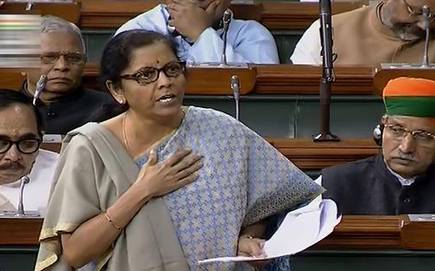The main objective is to draw ‘fresh investments’ into the country
Finance Minister Nirmala Sitharaman has asserted that the corporate tax cut bonanza, which would result in revenue foregone of Rs. 1.45 lakh crore, would help India become a “manufacturing hub” as it would boost new investments into the manufacturing sector.
The Minister said this while moving the Taxation Laws (Amendment) Bill, 2019 for consideration and passage.
The Lower House on Monday passed the Bill through voice vote. The Bill will next be taken up in the RajyaSabha. It will replace the Ordinance promulgated on September 20. Replying to over four-hour discussion in the LokSabha on the Bill, Sitharaman said it was too early to elaborate on the impact of the move, but added that already there were investment green shoots with several foreign companies evincing interest in the new regime that provides for 15 per cent corporate tax rate.
At this stage, the impact, although positive, is only anecdotal and will take some time before complete conclusions could be drawn on the move, Sitharaman added. “The whole objective of reducing corporate tax was to drive and attract manufacturing investments from all over the world. This had prompted us to introduce a special rate of 15 per cent for new investments from new companies that go into operation October 2019 to 2023,” she said.
Sitharaman also rejected suggestion from a Member of Parliament that the concessional regime of 15 per cent corporate tax rate should be extended to existing manufacturing companies that want to undertake expansion.
“We don’t want to complicate the system and so this cannot be extended to existing companies that want to go in for expansion. The intention of our September 20 move is to invite fresh investments,” she said.

